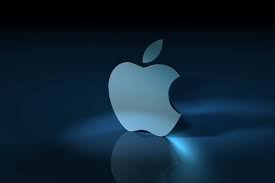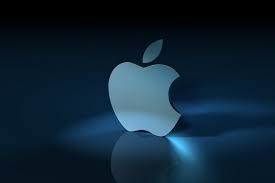
Beijing’s intellectual property authority has, through ruling, has handed the U.S. tech company Apple its latest setback in the pivotal market of China by saying that the US smartphone maker had violated the design patents of a Chinese device maker and may have to halt sales of its latest iPhones in Beijing.
The Beijing Intellectual Property Office wrote in its decision that since there were similarities in the the iPhone 6 and iPhone 6 Plus models by Apple and the Shenzhen Baili’s 100C phone, the US company had infringed on Shenzhen Baili’s patent rights.
There were no immediate response on the ruling from Apple, whose iconic gadgets helped define the modern smartphone industry. The company could be allowed to continue selling its phones during the process of it appealing against the ruling which is granted by the regulations.
Noting an overall fall of 7.3 percent this year Apple shares fell 1.3 percent to $96.30 in New York on Friday.
The ruling can have a protracted impact on Apple as the case against the company can be taken as a precedent and future similar lawsuits could potentially influencing the outcomes of litigation elsewhere in China even though the present ruling an dthe decision is applicable only in Beijing.
China is going through a mobile boom and Baili is one of scores of smartphone brands trying to cash in on the phenomena. Calls seeking a comment were left unanswered by Xu Guoxiang who is the inventor of the patent and listed as a Baili representative on yellow-pages site czvv.com.
There are several avenues including the Beijing Higher People’s Court and the Supreme People’s Court, that Apple, which is expected to introduce its next-generation iPhone in the fall, can try to utilize by appealing to stave off a sales ban, said Bird and Bird partner and IP specialist Ted Chwu.
“If the position by the Beijing IP office is upheld and Apple doesn’t appeal further, then in theory they wouldn’t be able to sell the iPhone 6 and iPhone 6 Plus,” he said.
This ruling is the latest in a series of setbacks for Apple in its largest market after the U.S. The agency delivering the decision administers matters involving patents in Beijing. For allegedly violating foreign publishing regulations, the book and movie services of Apple were blocked in April in China. An apology from CEO Tim Cook was forced when in 2013 the state media accused the company of shoddy customer service and inadequate warranties.
Last month a Beijing court ruled that a little-known accessories maker can use the label for a range of wallets and purses and left Apple losing its fight to keep the “iPhone” exclusive to its products. Following a dispute over the right to the iPad name in China, Apple paid $60 million to Proview International Holdings Ltd. to settle the issue in 2012.
Even though it has begun to experience a slowdown in China, Apple has relied on the world’s second largest economy to sustain its pace of growth. Revenue in Greater China, which includes Hong Kong and Taiwan, fell 26 percent to $12.5 billion for the three months ended March 26. Cook has pledged to continue investing despite an economic deceleration.
(Source:www.bloomberg.com)
The Beijing Intellectual Property Office wrote in its decision that since there were similarities in the the iPhone 6 and iPhone 6 Plus models by Apple and the Shenzhen Baili’s 100C phone, the US company had infringed on Shenzhen Baili’s patent rights.
There were no immediate response on the ruling from Apple, whose iconic gadgets helped define the modern smartphone industry. The company could be allowed to continue selling its phones during the process of it appealing against the ruling which is granted by the regulations.
Noting an overall fall of 7.3 percent this year Apple shares fell 1.3 percent to $96.30 in New York on Friday.
The ruling can have a protracted impact on Apple as the case against the company can be taken as a precedent and future similar lawsuits could potentially influencing the outcomes of litigation elsewhere in China even though the present ruling an dthe decision is applicable only in Beijing.
China is going through a mobile boom and Baili is one of scores of smartphone brands trying to cash in on the phenomena. Calls seeking a comment were left unanswered by Xu Guoxiang who is the inventor of the patent and listed as a Baili representative on yellow-pages site czvv.com.
There are several avenues including the Beijing Higher People’s Court and the Supreme People’s Court, that Apple, which is expected to introduce its next-generation iPhone in the fall, can try to utilize by appealing to stave off a sales ban, said Bird and Bird partner and IP specialist Ted Chwu.
“If the position by the Beijing IP office is upheld and Apple doesn’t appeal further, then in theory they wouldn’t be able to sell the iPhone 6 and iPhone 6 Plus,” he said.
This ruling is the latest in a series of setbacks for Apple in its largest market after the U.S. The agency delivering the decision administers matters involving patents in Beijing. For allegedly violating foreign publishing regulations, the book and movie services of Apple were blocked in April in China. An apology from CEO Tim Cook was forced when in 2013 the state media accused the company of shoddy customer service and inadequate warranties.
Last month a Beijing court ruled that a little-known accessories maker can use the label for a range of wallets and purses and left Apple losing its fight to keep the “iPhone” exclusive to its products. Following a dispute over the right to the iPad name in China, Apple paid $60 million to Proview International Holdings Ltd. to settle the issue in 2012.
Even though it has begun to experience a slowdown in China, Apple has relied on the world’s second largest economy to sustain its pace of growth. Revenue in Greater China, which includes Hong Kong and Taiwan, fell 26 percent to $12.5 billion for the three months ended March 26. Cook has pledged to continue investing despite an economic deceleration.
(Source:www.bloomberg.com)














